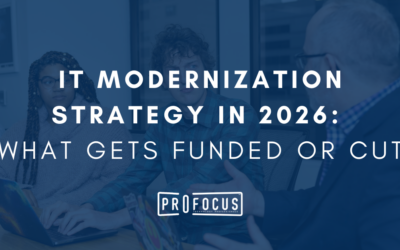At ProFocus, we’re always tracking how innovation shapes the future of tech—and right now, MLOps is leading the charge.
Machine Learning (ML) has moved beyond proof-of-concept. It’s now driving real outcomes for businesses across industries. But getting models into production and keeping them reliable is no small feat. That’s where MLOps (Machine Learning Operations) comes into play.
MLOps brings DevOps-style workflows to the world of ML, helping teams move faster, stay agile, and ensure models continue to deliver value after deployment.
What is MLOps? (Machine Learning Operations Explained)
MLOps, or Machine Learning Operations, is a set of practices that combines machine learning, DevOps, and data engineering to deploy and maintain ML systems in production reliably and efficiently. It aims to unify ML system development (Dev) and ML system operation (Ops).
- According to AWS, MLOps is an ML culture and practice that unifies ML application development with ML system deployment and operations. It automates and standardizes processes across the ML lifecycle, including model development, testing, integration, release, and infrastructure management.
- Neptune.ai describes MLOps as a set of practices for collaboration and communication between data scientists and operations professionals. Applying these practices increases the quality, simplifies the management process, and automates the deployment of machine learning and deep learning models in large-scale production environments.
AWS views MLOps as a technical practice that emphasizes automation and standardization across the ML lifecycle, with a strong focus on infrastructure, CI/CD, and scaling models in production.
Neptune.ai focuses more on collaboration and workflow management, defining MLOps as a way to streamline communication between data science and operations and manage models more reliably.
Key components of MLOps include:
-
Data Management: Ensuring data quality, versioning, and accessibility.
-
Model Development: Experimentation, training, and validation of models.
-
Continuous Integration/Continuous Deployment (CI/CD): Automating the integration and deployment of code changes.
-
Monitoring and Logging: Tracking model performance and system health in production.
-
Governance and Compliance: Maintaining regulatory requirements and ethical standards.
Implementing MLOps practices leads to faster deployment of ML models, better accuracy over time, and stronger assurance that they provide real business value. For a deeper dive into MLOps principles and implementation strategies, consider exploring the following resources:
Why MLOps is Critical to AI and Software Engineering
Here’s why we’re seeing more companies embrace MLOps as a core part of their data strategy:
- Faster Time-to-Value: Automated pipelines accelerate model deployment and insights.
- Reliable Production Models: Real-time monitoring helps detect issues before they escalate.
- Cross-Functional Collaboration: MLOps connects data science, DevOps, and IT teams to break down silos.
- Scalability: Models roll out consistently across environments.
- Compliance and Governance: Built-in tracking supports auditability and accountability.
Common MLOps Challenges Facing Engineering Teams
We’ve helped clients navigate these common MLOps roadblocks:
- Talent Gaps: The need for MLOps specialists is outpacing supply.
- Tool Overload: There are tons of platforms—choosing the right stack takes experience along with a good strategy.
- Model Drift: Production models degrade as data evolves without the right retraining pipelines.
- Security Risks: Automated workflows need oversight to avoid vulnerabilities.
How to Implement MLOps: Getting Started Tips
Ready to get started with MLOps? Here’s where we recommend beginning:
- Evaluate your ML lifecycle. Pinpoint what’s working and what’s slowing you down.
- Upskill your team. Cross-train DevOps pros and data scientists in each other’s worlds.
- Choose your tools wisely. Platforms like MLflow, SageMaker, and Vertex AI provide robust capabilities.
- Build for repeatability. Think CI/CD for models—with versioning, monitoring, and rollback in place.
MLOps Jobs and Career Trends: FAQ
How in-demand are MLOps roles in 2025?
Very. MLOps engineering roles have grown nearly 10 times over the last five years (People in AI, 365 Data Science). Companies are prioritizing ML operations to ensure models in production are stable, scalable, and secure.
What are typical MLOps salaries in the U.S.?
Salaries for experienced MLOps engineers range from $160,000 to $200,000 per year. This reflects both the complexity of the role and the talent shortage in the field.
What skills are employers looking for in MLOps candidates?
Cloud platform expertise (AWS, Azure, GCP), CI/CD experience, containerization (Docker, Kubernetes), and knowledge of model monitoring tools are all highly sought after.
Which industries are adopting MLOps the fastest?
Finance, healthcare, and e-commerce are leading the way, using MLOps to streamline operations, improve personalization, and manage risk more effectively.
The ProFocus Perspective
At ProFocus, we’re seeing these hiring trends firsthand. Demand is high, and companies are looking for professionals who can not only build ML models but also operationalize them reliably and securely.
Whether you’re building an AI capability from the ground up or fine-tuning your current workflows, we can help. ProFocus specializes in connecting companies with the right talent for complex roles across AI, DevOps, and cloud infrastructure. See how we can support your hiring or consulting needs.
Looking for more data on the trends shaping AI and engineering hiring? Explore our latest Silicon Forest Tech Trends Report.
Want to explore more about the role of AI in software development? Read our recent post on how AI is reshaping engineering.
We also host tech leadership roundtables, where we share insights and strategies from the field.
Stay Connected
Subscribe to the Silicon Forest newsletter for more updates on MLOps, emerging tech, and what’s next in the world of software and data.
Let us know how we can help you build the future of AI—smarter, faster, and more reliable.




